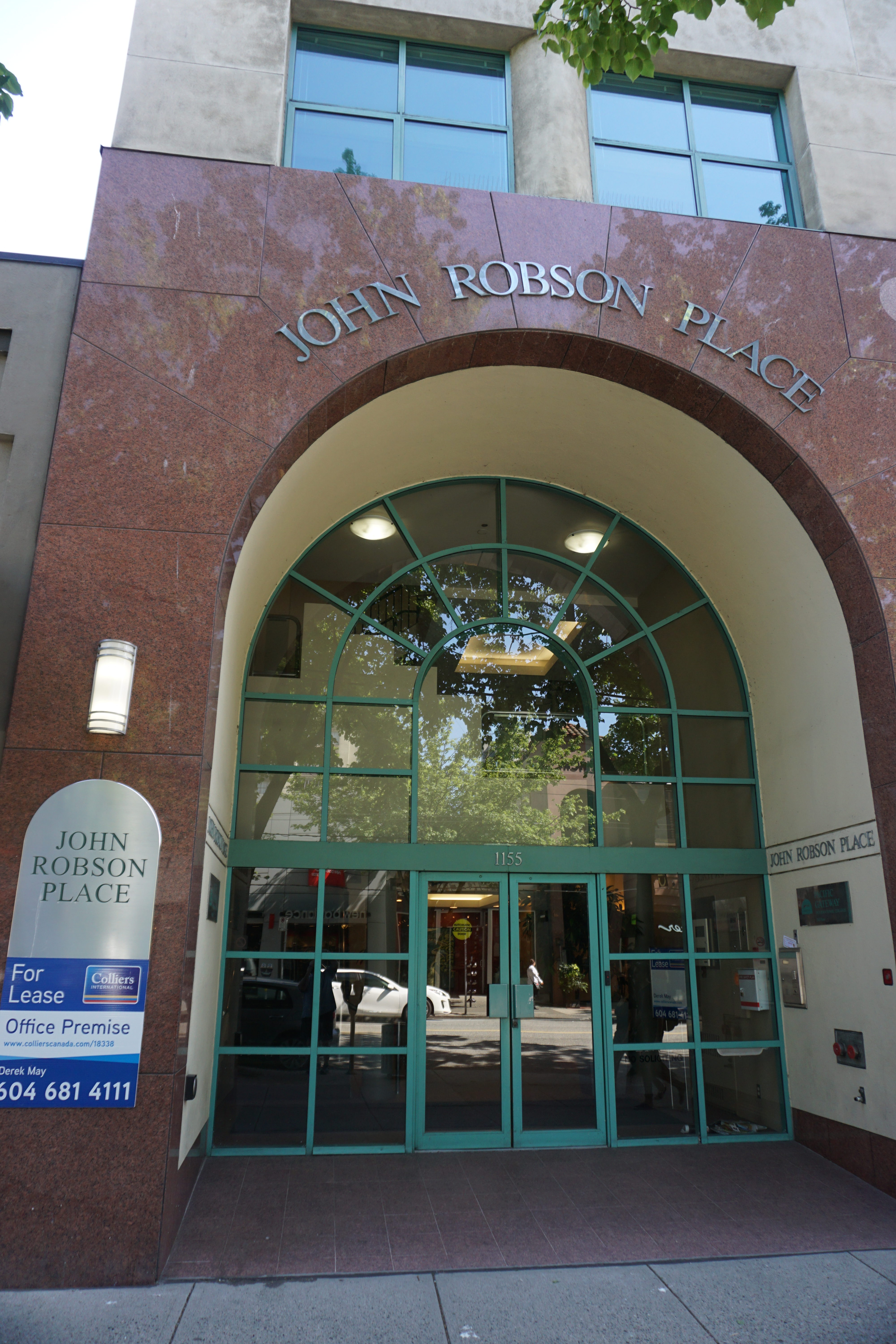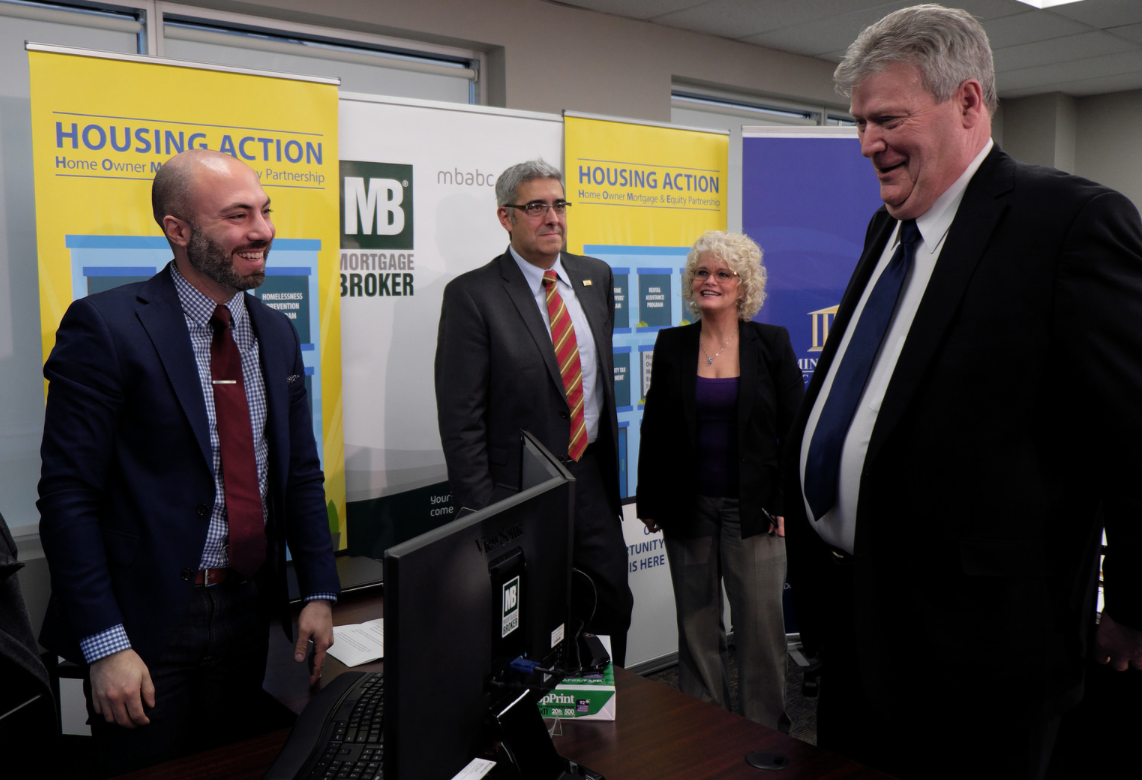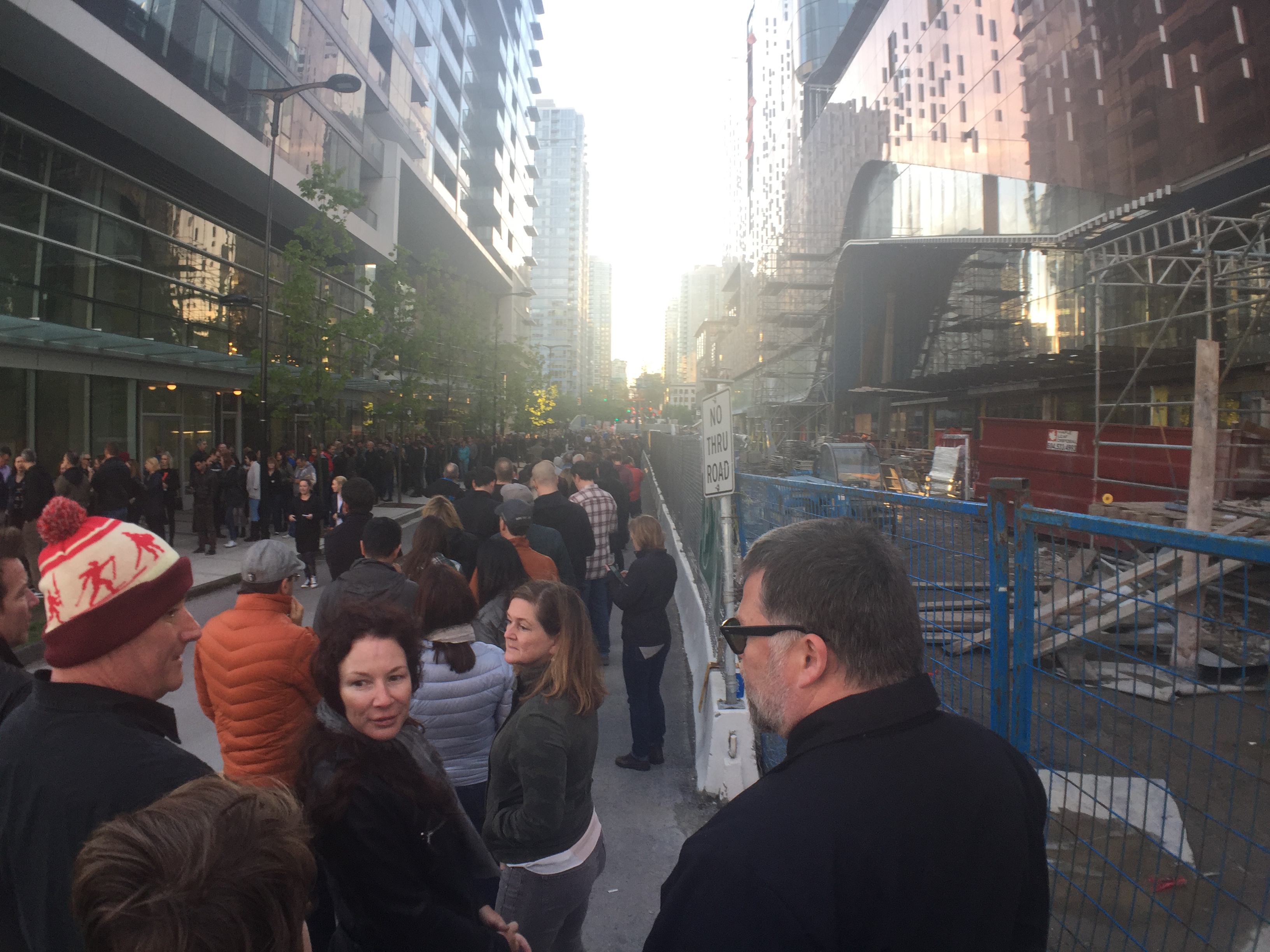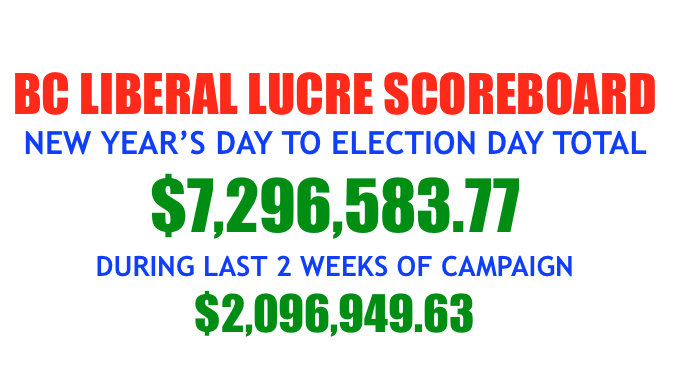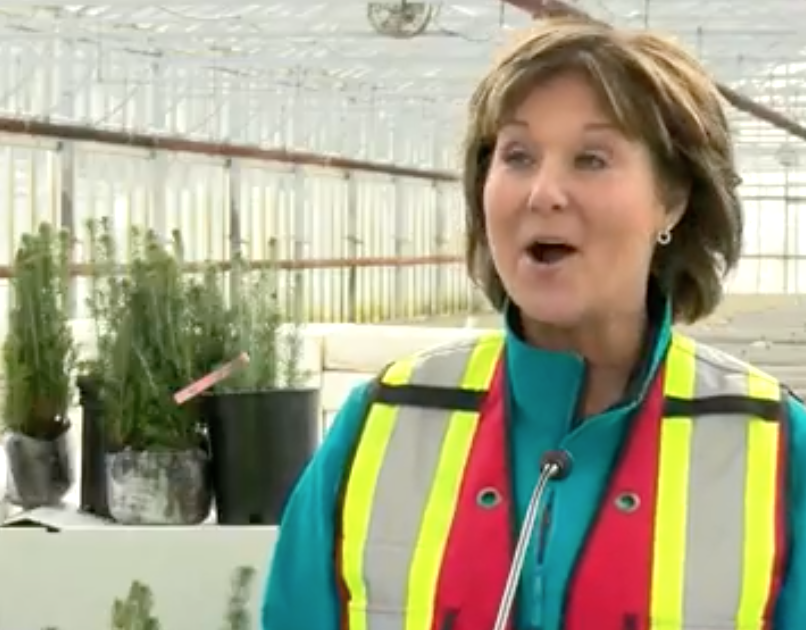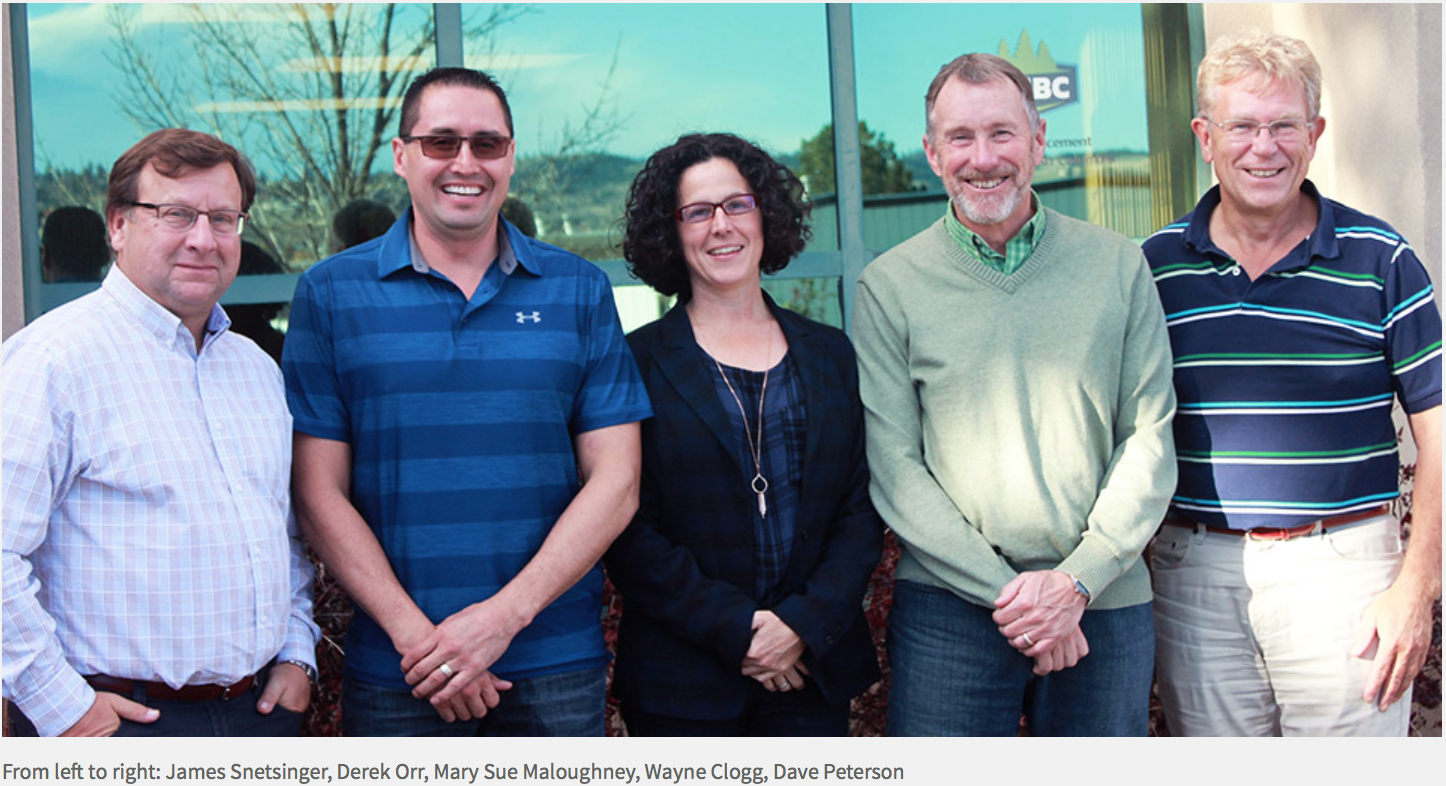Bob Mackin
On May 16, theBreaker exclusively reported that the BC Liberals had raised almost $7.3 million between New Year’s Day and Election Day. That figure was based on the party’s unaudited, proactive disclosures on its website.
Right before Victoria Day weekend, the party slipped another PDF onto its website. After conversion to Excel, theBreaker has discovered that the Liberals brought in another $914,751.50 in donations.
That pushes the total for 2017 so far to a whopping $8,211,335.27.
Compare that to the $7.44 million the party raised for the entire 2008 calendar year. Add it to the $13.1 million gross from 2016, and the Liberals have raised $21.3 million in less than 17 months. Deputy Premier Rich Coleman boasted last September that the party was already “fully funded” for the campaign. So why didn’t it stop?
Elections BC set $4,882,404.95 as the maximum a party could spend during the 28-day election period and $77,674.92 per candidate (or $6,757,691.94 for a full slate in 87 ridings). Even if the Liberals spent to the limit under both categories, they would have a sizeable war chest for 2021 or sooner.
The new list includes $100,000 from Rick Ilich, the CEO of Townline Homes, which ties Goldcorp’s Jan. 4 donation of $100,000 for the biggest single contribution of the 2017.
Townline scored a $23.2 million loan from BC Housing in late 2015 for a Port Moody project called The Strand. BC Housing is the Crown corporation under Coleman’s control.
Ilich also gave the party $100,000 in February 2016, on the same day that the party was showered with $700,000 from various arms of the Wall-Redekop clan.
The new list also shows $75,000 from Wesgroup Properties, $50,000 from Maple Ridge Plaza Properties Ltd., and $30,000 from Burnco Rock Products Ltd.
There were four donations from four of developer Norman Cressey’s numbered companies, totalling $100,000.
Robert Bosa’s BlueSky Properties Inc. and Bosa Properties gave $25,000 each. Though the Liberals claim they processed the donations on May 12, donations may have been received many months prior.
Citizens disgusted
Despite widespread calls for reforms, there are still no legal limits to the size or source of donations to B.C. provincial or municipal political parties. The RCMP and special prosecutor David Butcher are investigating donations made by lobbyists on behalf of their clients, after a March 4 Globe and Mail story. The Liberals have returned nearly $250,000 in illegal donations.
Under the freedom of information law, theBreaker asked March 17 for copies of correspondence to the Office of the Premier about BC Liberal fundraising, the lack of laws, and Elections BC calling in the RCMP to investigate lobbyists donations. According to documents received May 23, the citizens who wrote to Premier Christy Clark wanted immediate change. Many said they would base their ballot box decision on the need for campaign finance reform.
(The Premier’s office censored the names of letter-writers, citing a privacy clause in the FOI law.)
March 4, 10:38 a.m.: “The current lack of limits on who can donate and how much is corrupting to our system of government. Is would and must be changed. Your lack of action on this is morally wrong and should damage your re-election chances. For what to do and how, look to Quebec, which used to be the target of many corruption allegations and is now becoming a model of campaign financing probity.”
March 5, 12:41 p.m.: “The B.C. rules on poetical donations are a blight on democracy in our province. It is time for real limits on how political parties are funded. This will certainly affect my vote this year.”
March 6, 2:53 p.m.: “How can you possibly project yourselves as competent and trustworthy guardians of what is best for this great province when you refuse to address this issue? It is irresponsible and reeks of the potential for corruption – or, more likely, it is corrupt already.”
March 7, 3:23 p.m.: “Donations from large corporations to the Liberal Party of B.C. is legalized bribery. It appears that your government has been bought and paid for by the corporate lobby.”
March 9, 4:53 p.m.: “So now I will know in real time who is buying the government. Stop legalized corruption of our democracy. Do the right thing by ending corporate and union donations and limiting individual contributions. This election is yours to lose.”
March 13, 9:18 p.m.: “I don’t want my government determining health policy based on the size of donations to the governing party from Big Pharma, Big Pot, Big Alcohol, or Big Tobacco, establishing environment programs based on the size of donations from the oil industry or fish farmers, or deciding taxation and social safety net strategy based on the size of donations from only the wealthiest citizens.”
March 14, 7:41 a.m.: “Legislation can be enacted quickly – the ethically right thing to do would be to change the law today. There should be no donations over one hundred dollars.”
March 10, 11:20 a.m.: “Unlimited corporate and union donations to political parties are not only unethical, but also are eventually poisonous to the recipient. We’re watching and we don’t like what we see. The optics suck!”
March 10, 10:34 p.m.: “Accepting money from foreign corporations and holding private meetings where rich people can get the undivided attention of politicians is beyond despicable. Apparently ethics in politics is not a part of the Liberal party of British Columbia’s strong suits.”
March 6, 8:30 p.m.: “I think that it is time to put a cap on donations. Access to government by a monied few is not right.”
The documents released to theBreaker included a copy of an undated, handwritten letter from a citizen that had apparently been trying to get a meeting or phone call with Clark for two years, but could not afford to attend a cash-for-access fundraiser.
“Sadly, because of financial constraints, most of us cannot participate in the above practices, which in essence is undermining the ‘democratic process’. It is becoming evident that British Columbia is essentially a plutocracy, where the wealthiest of us are now governing the province.”
2017_May19_BClibs 2 by BobMackin on Scribd
OOP-2017-71014 by BobMackin on Scribd
Bob Mackin
On May 16, theBreaker exclusively










